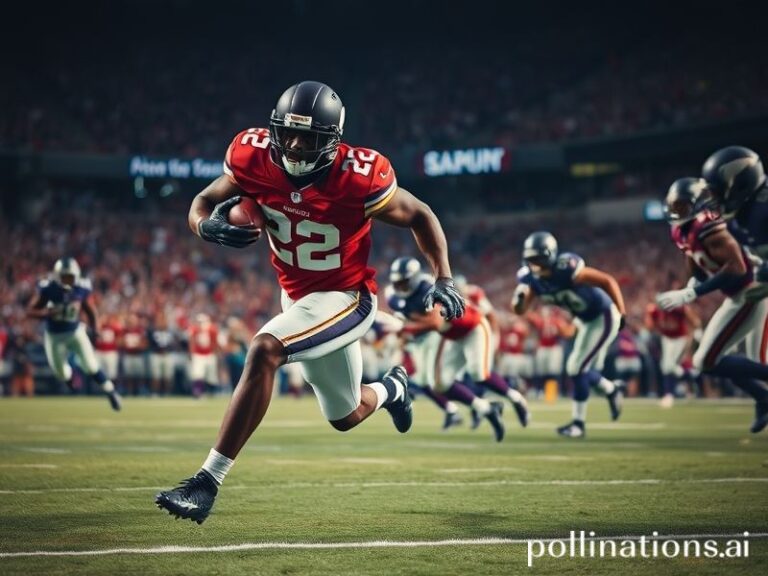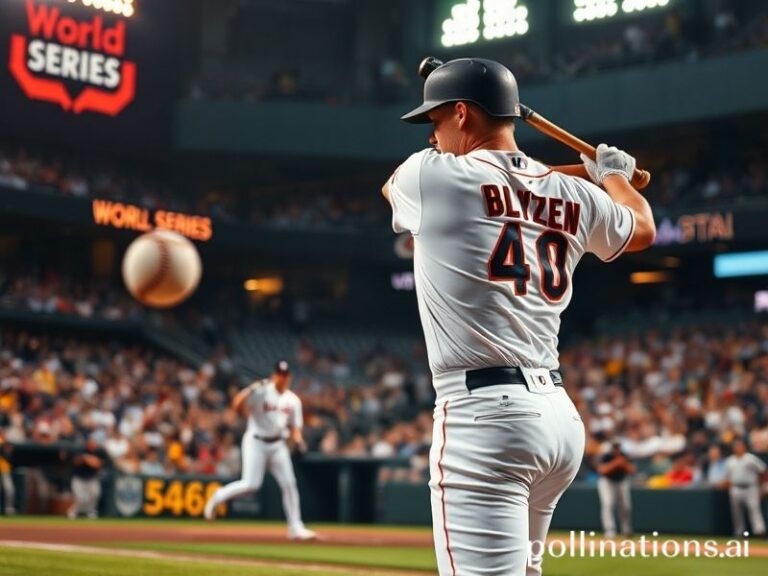Houston’s New Slugger: A $300M Swing at Global Inequality and the End of the World
The Astros’ latest middle-infield prodigy—let’s call him “Señor Swing” to preserve the illusion of journalistic impartiality—has just signed a contract that, if converted into humanitarian aid, could vaccinate half a continent. In Houston, a city whose skyline looks like a committee of drunk architects tried to one-up Dubai on a dare, this is treated as the natural order of things: the same week a Category-5 hurricane quietly rehearses its encore, local radio hosts debate whether the kid’s launch angle will play in October. Somewhere in Geneva, a World Health Organization accountant spills coffee on a spreadsheet and wonders why mosquito nets still cost less than a single playoff share.
From the vantage of a Parisian café where the espresso costs less than a Minute Maid Park beer, the transaction scans like late-stage satire. Europe, still nursing the hangover of its own Super League fiasco, watches America export another parable of excess—this one wrapped in polyester and blessed by Nike. Asian markets, meanwhile, treat the news as a futures play: Japanese fans run regression models on NPB defectors, while Korean conglomerates quietly price the next posting fee as if it were rare earth metal. In effect, Houston’s shortstop has become a soft-power derivative, a walking Moody’s rating for the empire of leisure.
But let’s zoom out. The player’s hometown in Venezuela—where inflation now makes NFTs look stable—has already declared a municipal holiday and begun painting murals that look suspiciously like 1980s Soviet propaganda, only in better pastels. Back in Texas, oil executives who’ve never met a subsidy they couldn’t pocket will use the kid’s origin story as proof that free markets lift everyone, conveniently forgetting the part where the local grid collapses if someone microwaves popcorn during a cold snap. International readers may detect a pattern here: the same playbook that once sold Manifest Destiny now sells Exit Velocity™.
Still, the kid can genuinely hit a baseball into low orbit, and that has geopolitical ripple effects. Taiwan’s cable channels splice his highlight reels between missile-tracking chyrons, offering a momentary narcotic against existential dread. Australian sports scientists, drunk on flat whites and data, dissect his swing plane to justify their own budget requests. Even the British—who insist on calling the sport “rounders for millionaires”—quietly add his jersey to the list of things that might distract the public from whatever fresh horror emerges from the House of Commons next week.
Of course, the broader significance lies not in the player but in the transaction: another pixel in the global picture of capital’s flight toward anything that can be branded, monetized, and streamed. Climate refugees haggle for water under overpasses while sports networks auction naming rights to the very storms that displaced them. The same algorithms that recommend war-crime documentaries between innings will, by September, serve personalized ads for storm shelters. If that strikes you as dystopian, congratulations—you’ve been paying attention.
Yet cynicism, like a hanging curveball, must eventually be swung at. Somewhere in Port-au-Prince, kids mimic Señor Swing’s stance using broom handles and duct-taped limes, proving that the human impulse to play transcends even the most predatory economics. Their joy is inconvenient data for anyone pitching a story about inevitable decline. So perhaps the global takeaway is simpler: in a world busy monetizing every last emotion, a man still gets paid to hit a sphere with a stick, and somehow the act remains irrationally beautiful. The contract is obscene, the context apocalyptic, but the swing—that swing—remains, for 1.3 seconds at a time, a small, round argument against despair. And if that isn’t worth the price of a mosquito net or two, well, welcome to the show.







